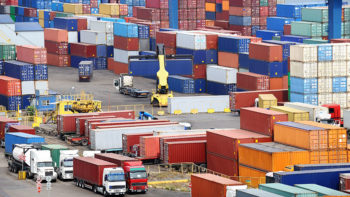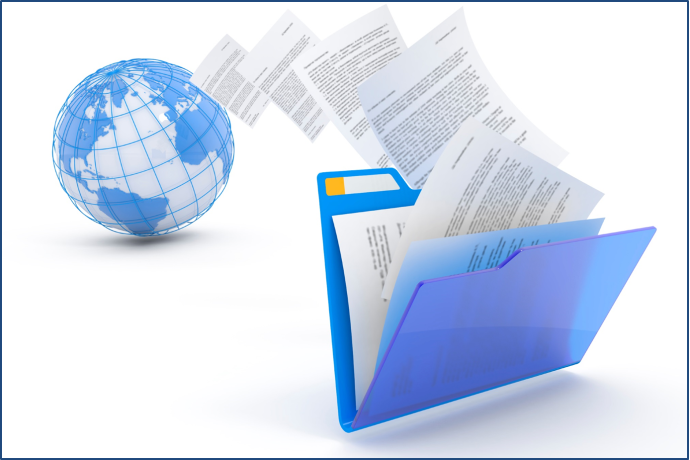In the dynamic and competitive realm of global commerce, the safe and efficient transportation of goods is pivotal to success. The process of shipping from China to Nigeria is rife with challenges, but fear not! This article will reveal the key insights required to master the art of safe and efficient shipping, empowering you to navigate the intricacies of international trade with confidence.
I. Understanding the Logistics of Importation
A. Defining Logistics in Importation
Logistics forms the backbone of the importation process, encompassing a range of vital activities required for the successful transportation of goods from China to Nigeria. It involves meticulous planning, coordination, and execution of various processes, including inventory management, order fulfillment, transportation, and more.
B. Assessing the Impact of Inefficient Logistics on Importation
In shipping from China to Nigeria, Inefficient logistics can have far-reaching consequences in the importation process. Delays, damaged goods, increased costs, and customer dissatisfaction are just some of the potential outcomes. Thus, it is crucial to pinpoint the areas where inefficiencies may occur, such as inadequate warehouse management, ineffective routing, suboptimal inventory control, and less-than-adequate packaging practices.
II. Preparing for Safe Shipping From China to Nigeria
A. Selecting the Right Packaging Materials for Importation
Selecting appropriate packaging materials is a fundamental aspect of ensuring safe importation. These materials must be sturdy, durable, and capable of shielding the contents from external forces during transit. Factors to consider include the nature of the product, fragility, weight, and environmental factors that may impact the packaging during the journey from Shipping from China to Nigeria.
B. Proper Packaging Techniques for Safe Importation
To ensure the safe shipping of items from China to Nigeria, proper packaging techniques are essential. Fragile and sensitive items require special attention, including the use of cushioning materials, suitable dividers, and shock-absorbing packing materials. Different goods may necessitate specific organizational and securing strategies to prevent movement and damage during transit.
III. Optimizing Cargo Handling for Importation
A. Choosing the Right Transportation Mode for Importation
Selecting the most suitable transportation mode is critical for efficient importation. Whether it’s air, sea, road, or rail, each mode comes with its own set of benefits and considerations. Factors to evaluate include cost, speed, distance, the nature of goods, and the specific requirements of the destination in Nigeria. By carefully assessing these factors, importers can make informed decisions to optimize their cargo handling.

B. Maximizing Container Utilization for Importation
Maximizing the use of container space is a strategic skill that can significantly enhance the efficiency of the importation process. Importers should employ techniques such as proper stacking, efficient utilization of vertical space, strategic arrangement of goods of various sizes, and effective securing mechanisms. By doing so, they can make the most efficient use of container capacity, reducing both costs and the environmental impact of importation.
IV. Securing Necessary Documentation for Importation
A. Understanding International Shipping Regulations for Importation
Navigating international shipping regulations is a vital part of safe and efficient importation. Importers must understand the key rules and regulations imposed by different countries, ensuring compliance with customs requirements regarding documentation, labeling, packaging, and safety standards for goods coming into Nigeria from China.

B. Essential Documentation in the Importation Process
Shipping from China to Nigeria involves a plethora of essential paperwork and documentation. This includes bills of lading, commercial invoices, packing lists, certificates of origin, customs declarations, and insurance documents, among others. Accuracy, completeness, and timeliness in completing these documents are paramount to avoid delays, penalties, and potential legal issues during the importation process.
V. Embracing Technology for Efficient Importation
A. Harnessing the Power of Tracking and Monitoring Systems for Importation
Real-time tracking and monitoring technology revolutionize the importation process. These systems provide numerous benefits, including enhanced visibility, proactive issue identification, improved security, and accurate delivery estimations. Importers can choose from a range of available tracking and monitoring solutions tailored to their specific needs.
B. Streamlining Communication and Collaboration for Importation
Effective communication within the importation industry is vital for smooth operations. Utilizing digital platforms and applications enables seamless collaboration between importers, carriers, customs authorities, customers, and other stakeholders involved in the importation process. Implementing efficient communication methods, such as electronic data interchange (EDI) and cloud-based platforms, facilitates real-time information sharing, reduces errors, and enhances collaboration.
VI. Preventing and Managing Shipping Delays
A. Identifying Potential Delays in the Importation Process
Importation delays can have significant impacts on both importers and customers. Common causes include inefficient processes, adverse weather conditions, customs hold-ups, port congestion, and unforeseen circumstances. Proactively identifying potential delays through comprehensive planning and risk assessment is crucial for mitigating their impact.
B. Mitigating and Resolving Importation Delays
When faced with unexpected delays in the importation process, quick and effective action is necessary. Importers should have contingency plans in place to address potential disruptions, such as alternative transportation options, expedited customs clearance, and proactive problem-solving techniques. By responding promptly and efficiently, importers can mitigate the impacts of delays and maintain customer satisfaction.
VII. Ensuring Compliance with Customs Procedures for Importation
A. Navigating the Complex World of Customs Procedures for Importation
Navigating customs procedures is a formidable challenge for importers bringing goods from China to Nigeria. Each country has its own unique customs regulations and requirements, which can be complex and ever-changing. Understanding these regulations and addressing potential issues at customs checkpoints is vital to prevent delays, fines, and reputational damage during the importation process.
B. Engaging Customs Brokers and Professionals for Importation
Customs brokers play a crucial role in facilitating smooth customs procedures during the importation process. Their expertise in navigating complex regulations, completing necessary paperwork, and ensuring compliance with customs requirements is invaluable for importers. When engaging a customs broker, it is important to select a reliable and efficient partner to streamline the customs clearance process for goods imported into Nigeria from China.
VIII. Sustainable and Environmentally Friendly Shipping Practices
A. The Importance of Sustainability in Importation
Assessing the environmental impact of importation is essential in modern times. The importation process, especially when shipping across long distances, can contribute to carbon emissions and environmental degradation. Incorporating sustainable practices not only mitigates these impacts but also enhances brand reputation, attracts environmentally conscious customers, and contributes to a greener future.
B. Incorporating Green Initiatives into Importation Operations
Importers can make a positive environmental impact by implementing eco-friendly strategies during the importation process. This includes utilizing recyclable and biodegradable packaging materials, optimizing transportation routes to reduce emissions, promoting energy-efficient practices, and collaborating with partners and stakeholders who share the same sustainability goals. By embracing green initiatives, importers can align their operations with environmental responsibility when bringing goods from China to Nigeria.
IX. Summary
In conclusion, mastering the art of safe and efficient importation from China to Nigeria requires careful consideration of various aspects of the importation process. Understanding logistics, choosing the right packaging materials, optimizing cargo handling, securing necessary documentation, embracing technology, preventing delays, ensuring customs compliance, and promoting sustainability are all essential components of successful importation operations. By implementing these untold secrets.
XI. FAQs
Here are some common questions and concerns regarding safe and efficient shipping, along with comprehensive answers to provide guidance:
- How can I choose the most suitable transportation mode for my goods?
- Consider factors such as cost, speed, distance, nature of goods, and destination requirements when selecting a transportation mode.
- What is the role of a customs broker, and how can I choose a reliable one?
- Customs brokers help navigate complex customs procedures. Choose a customs broker with expertise, solid reputation, and a proven track record of efficiency.
- Why is sustainability crucial in the shipping industry?
- The shipping industry significantly impacts the environment. Implementing sustainable practices reduces carbon emissions, enhances brand reputation, and contributes to a greener future.
- How can I prevent shipping delays?
- Proactively identify potential delays, have contingency plans in place, and employ problem-solving techniques to mitigate delays when they occur.
By addressing these and other frequently asked questions, this article aims to provide comprehensive guidance for professional shippers seeking safe and efficient shipping practices.

